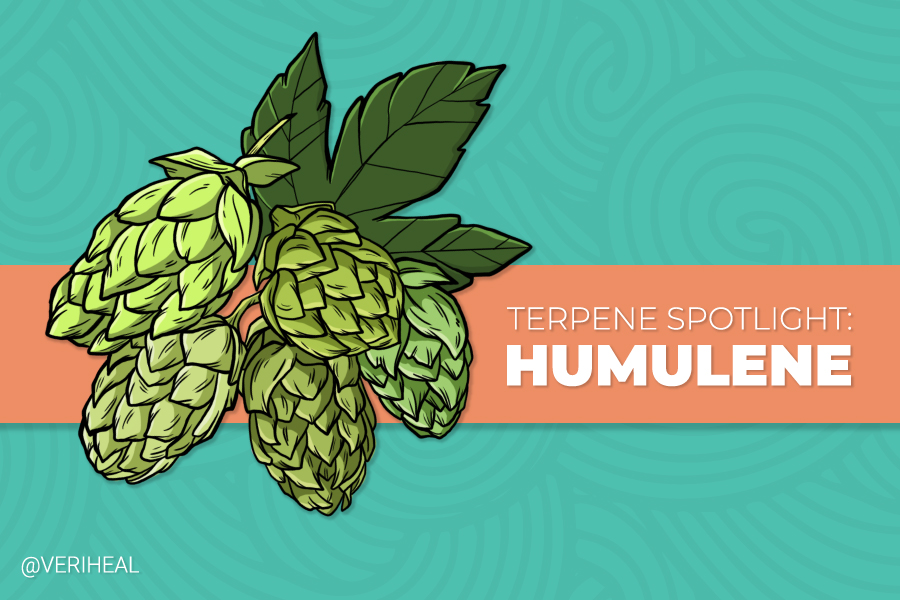Terpenes and cannabis go hand in hand. If it weren’t for terpenes, cannabis wouldn’t have the flavor and smell that it does, and it might possibly not work the same. Terpenes play an essential role in how our body processes cannabinoids. They can cause CB1 and CB2 receptors to absorb less or more of specific cannabinoids. The results vary from person to person. There are many different terpenes found in the cannabis plant. In this article, we will look specifically at Humulene.
Introducing Humulene
Humulene has spicy, woody, earthy notes. This terpene is found in black pepper, cloves, and sage as well as other herbs and plants. It can be found in strains of cannabis such as Skywalker OG, Girl Scout Cookies, White Widow, Pink Kush, Sour Diesel, and Headband to name a few. Let’s explore this mysterious terpene and learn a little more about it.
The Potential Therapeutic Benefits of Humulene
Humulene has scientific evidence supporting its potential therapeutic benefits. Research suggests that this terpene can help aid in weight loss I helping to suppress the appetite. It also works as an anti-inflammatory, a pain reliever, and antibacterial. Some research even suggests that this fantastic terpene may have anti-proliferative or cancer-killing properties. All of these potential benefits are great news for medical patients and cannabis consumers everywhere. When you look at the vast array of benefits that one could potentially receive from terpenes and imagine them all together, it adds an entirely new layer of healing to cannabis beyond just cannabinoids such as THC, CBD, CBG, CBN, and others.
Why You Should Get Your Medical Marijuana Card
Veriheal has satisfied millions of patients nationwide by giving them access to these benefits
- Larger purchase limits
- Peace of mind
- Enhanced legal protection
- Access to higher potency strains
- Save up to 25% on cannabis purchases
- Skip the line at the dispensary
Digging Deeper Into the Research
Humulene was found to fight tumors when present in balsam fir oil and has the ability to produce Reactive Oxygen Species(ROS). In 2016, researchers discovered that when combined with other terpenes such as beta-caryophyllene and phytocannabinoids, humulene had the ability to help potentially terminate cancer cells. It has also been shown to offer antibacterial, antifungal, and anti-inflammatory properties.
Why Isn’t Terpene Testing Required and Why It Should Be
Terpene testing is something that many people believe should be a requirement where cannabis is sold legally. It would only make sense that if terpenes are proven to play an influential role in the effectiveness of cannabis, the concentration of terpenes should be tested, especially in medical markets. Many are not aware of this, but terpenes are responsible for many allergic reactions each year. While cannabis itself may not be directly harmful to many, for some, a specific terpene in a high concentration could trigger adverse effects. This is yet another reason why terpene testing should be required!
The Argument Against It
One of the arguments for those offering products that would qualify for terpene testing is cost. They say adding terpene testing would increase the overall price of cannabis products, making them more expensive for consumers. That shouldn’t be an issue. Many quality products are very affordable, and they offer both cannabinoid and terpene testing. The science of cannabis is vastly expanding. Our knowledge of cannabinoid therapies and terpenes is beginning to cultivate new light on the potential effectiveness of how cannabis can work for patients everywhere.
Author, Share & Comments







